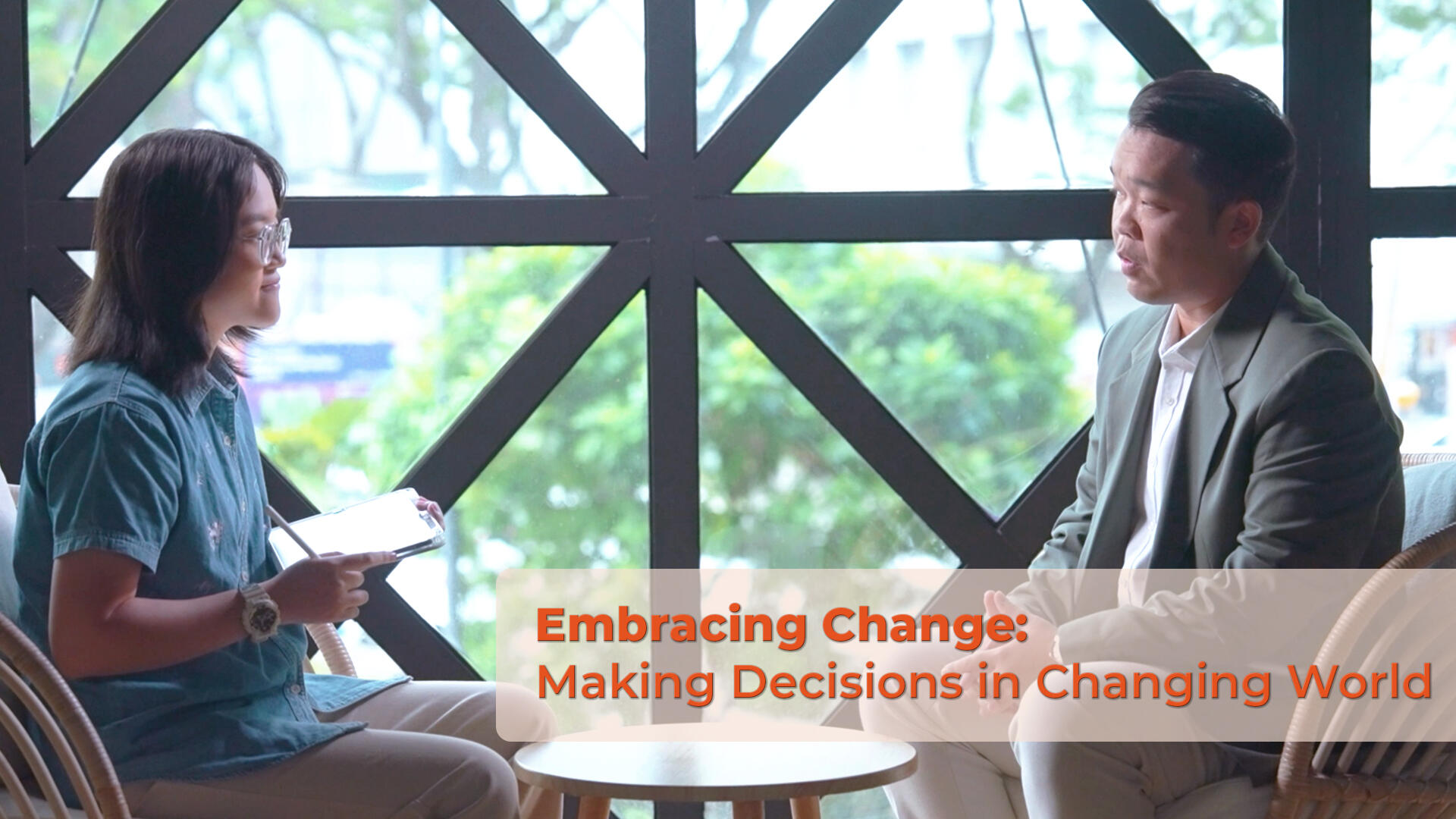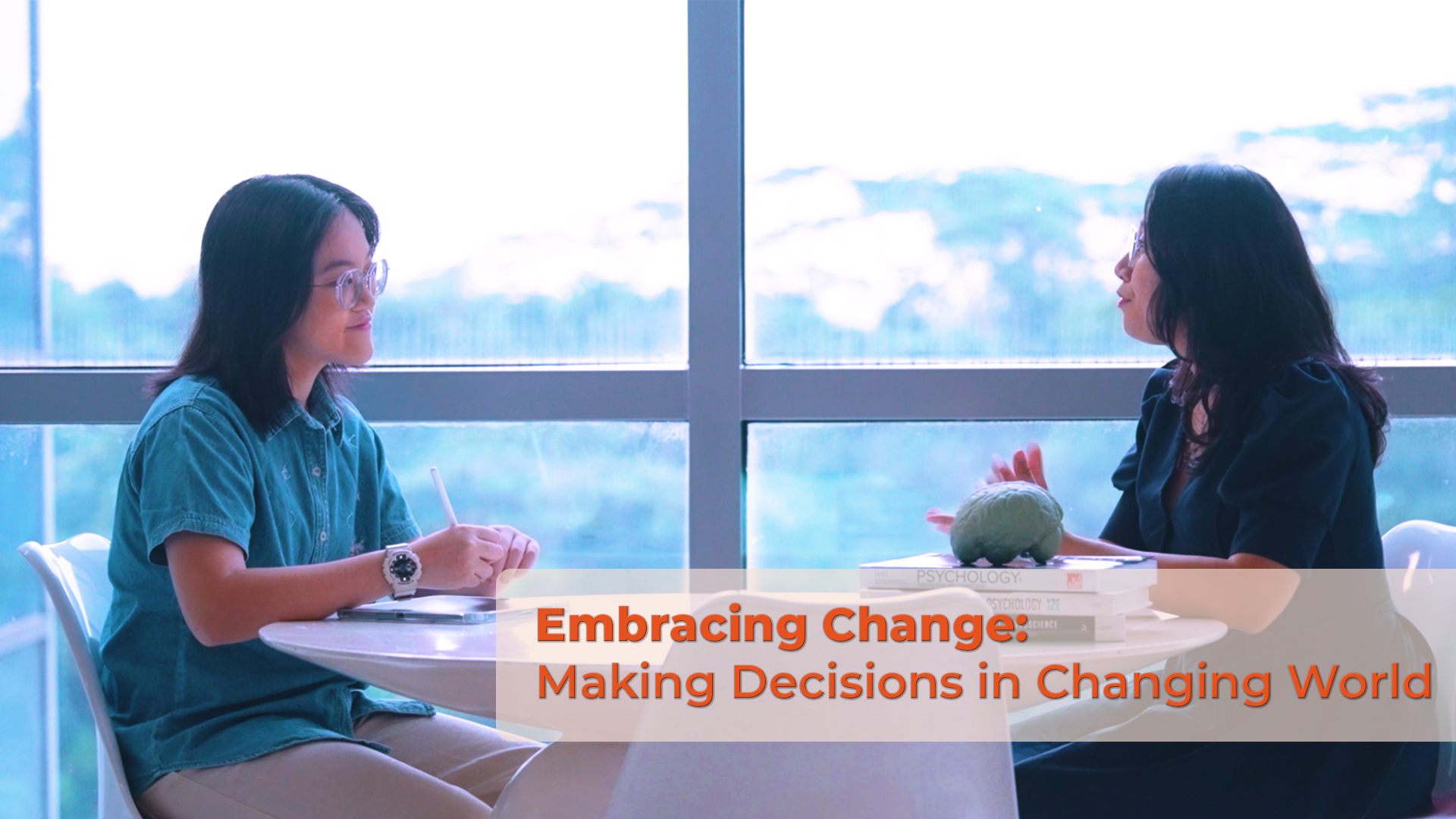Let’s talk about mental health
15 Nov 2021
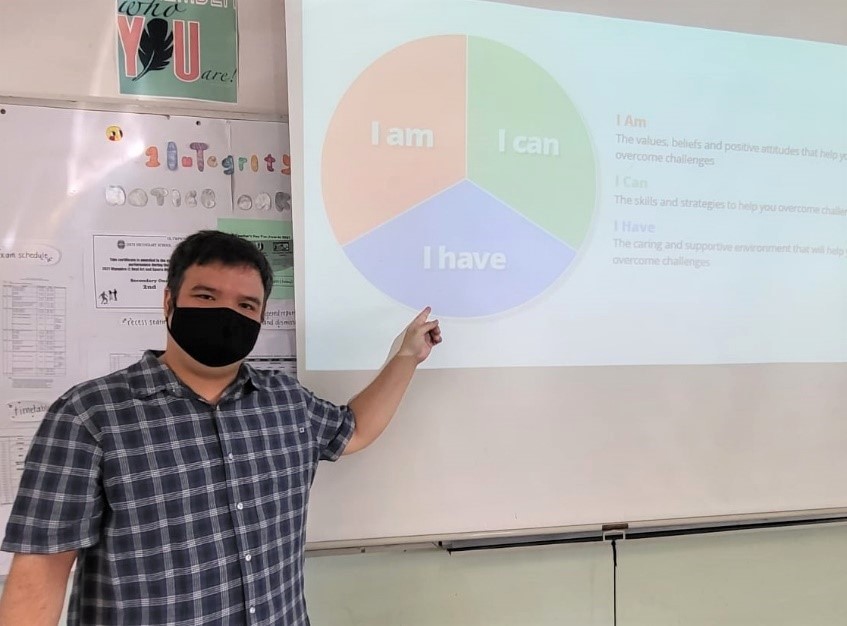
Is mental health for students just about exam stress? No, there’s a lot more, says two Specialised Character and Citizenship Education (CCE) teachers from Deyi Secondary. Here’s how schools are helping students take charge of their mental wellbeing under the revised CCE curriculum.
“Yes ’cher, my mum always tells me that if you think studying is stressful, wait till you are older and things get harder,” says a Secondary 1 boy in Mr Daniel Pflug’s Character and Citizenship Education (CCE) class in Deyi Secondary School. Mr Pflug is a Specialised CCE teacher, who is trained to role model and support other teachers in facilitating complex topics in the classroom.
Several other students nod in agreement. Another quips, “Yes they always say everyone goes through it, just tahan lah!”
“So how does that make you feel?” asks Mr Pflug.
The first boy shrugs and says, “It’s a bit hurtful. As if my feelings are not important. But it’s okay, I will just stop talking about it.”
“Would you say the same thing to a friend who is going through a difficult time? What do you think will be a kinder way to respond to someone in that situation?” prompts Mr Pflug.
And so the ideas flow as the students discuss mental health and learn about how they can support one another with empathy.
Students are given time to discuss and role-play how they would encourage a friend who is facing stress. There is some laughter and light moments as students enact situations, but there are also a lot of helpful suggestions on what their classmates should, or should not say to someone who’s feeling down.
Mr Pflug sums up, “Your mum is right that there will be bigger challenges ahead. But it’s also natural to feel overwhelmed at times. It’s ok to acknowledge that and reach out for help if you need it. The good thing is that you will become better at dealing with problems, too!”
It’s infused in different lessons
This is just one example of how mental health is taught in schools now.
While social-emotional learning has long been a pillar of CCE in schools, mental health literacy and help-seeking strategies have been enhanced in the revised CCE curriculum that is being progressively rolled out in schools since the start of this year.
The mental health topics for Sec 1 students include helpful and harmful coping strategies to deal with challenging situations, and how students can build resilience through self-control and tapping on their external network of support. They also learn to look out for signs of distress in their friends.
Mr Pflug points out that stress, for students, comes from many sources and not just exams.
“Besides studies, stress can also stem from conflict with friends and family, or a negative self-image. So we try to infuse messages about mental well-being throughout the year, in every CCE lesson.”
For example, early in the school year, students watched a video of someone who had difficulty making friends, and discussed how they would cope with feelings of loneliness.
“As Sec 1 students who had just transited into a new environment, students can identify with this feeling,” says Mr Pflug. “In a poll we conducted with a class of students, at least 10 indicated that they were very worried that they would not be able to make friends. So, the scenario is authentic and relatable to them.”
Later in the year, classes talk about managing relationships with family and friends, for example, working through disagreements with parents or resisting negative peer influence. Mental well-being messages are also infused into other CCE lessons, such as cyber wellness lessons.
Mr Pflug says, “Taking care of our mental health is a lot more than just avoiding mental illnesses. It is about being able to manage our thoughts, feelings and behaviour to effectively cope with life’s stresses. It’s also about relating well to others and finding a sense of meaning and purpose in life. All these contribute to our overall well-being.”
Even a National Education (NE) lesson on how to get along with one’s neighbours can include elements of mental well-being.
Ms Eileen Tan, who is also a Specialised CCE teacher, explains, “For that lesson, we talk about scenarios where their neighbours may be going through a difficult time, and we encourage students to be sensitive to others. Students also reflect how frustrations in other areas of their lives may make them more quick to misunderstand or get angry with others.”
“Mental well-being is like an added layer to many topics that we are already talking about in CCE!”
The language of resilience
One thing that comes up consistently across lessons in the revised CCE curriculum is the ‘I Am, I Can, I Have’ learning aid. This helps students think of who they are and their values (I Am), what they can do to overcome challenges (I Can), and the people they can reach out to for support (I Have).
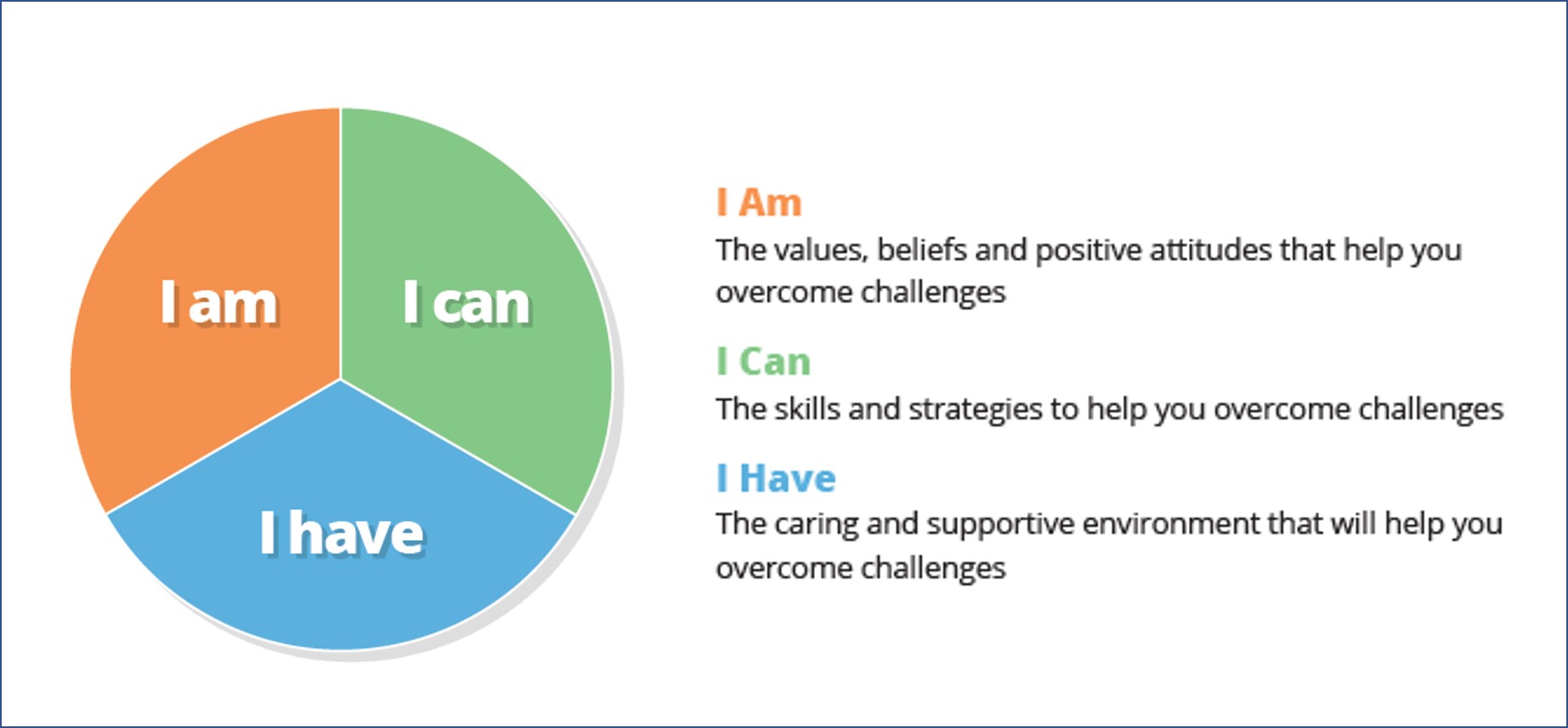
In a lesson focusing on cyber wellness on self-control, for example, students may be asked to reflect on impulsive behaviours they would like to change, such as excessive gaming or spending too much time on social media.
Students contrast that to their values. For example, they value responsibility (I Am), and so discuss strategies on how to regulate themselves, so that their well-being is not affected by excessive mobile gaming (I Can). They also consider who they can count on to help them stay on track, for instance, a friend who can remind them to put aside their mobile phones when it is time to hit the books (I Have).
Mr Pflug believes that the use of the resilience learning aid to guide reflection is empowering for students.
“Reflection has always been a key component of CCE,” he says. “But now, we are not just asking students to think about what went wrong, or give them a list of dos and don’ts. We affirm students by reminding them of the person they want to be and guide them to find the tools to achieve this.”
He also shares that teachers use the same language when guiding students. The consistent messaging reinforces the message and helps students in building up a resilient mindset.
“The intent is to demonstrate to students that they have agency over the challenges they may face in life. They should not feel helpless.”
Tackling issues with sensitivity
To encourage students to share their views in CCE lessons, teachers place students in small groups, or make use of online teaching tools to capture everyone’s responses simultaneously.
Mr Pflug shares, “Some of these topics can be personal and teenagers are not likely to want to share in front of a whole class. Online tools can help because their responses are anonymised. At the same time, students are reassured when they see what their friends are saying and realise that there are others who feel the same way.”
Teachers are also careful to explain the objectives of the lessons and tell the class that they may alert the teachers if they feel uncomfortable during the session.
“It helps that there are usually two teachers in class during the CCE lessons,” said Ms Tan. “So, one of them can look out for students’ reactions and talk to the child outside the class if needed.”
She recounted an incident when a student repeatedly went to the washroom during a lesson on positive self-image. The teachers noticed, and later found out that she had been struggling with body-image issues, and had been skipping meals to keep to an ideal body weight. Fortunately, the girl responded to counselling. Together with parents’ support and involvement, the student found a healthier way to cope with her issues.
“It can be challenging to talk about such issues,” says Ms Tan. “But it is better and safer for students to learn and discuss them in school rather than depend on the internet for their information.”
Open conversations
The teachers feel that one main difference driven by the revised CCE curriculum is in creating a culture where it is okay to talk about one’s mental health.
Students are taught explicitly about the signs of distress and what they can do if they spot these signs in themselves, or in their friends. Teachers have also observed that more students are willing to share about the problems they or their friends are facing.
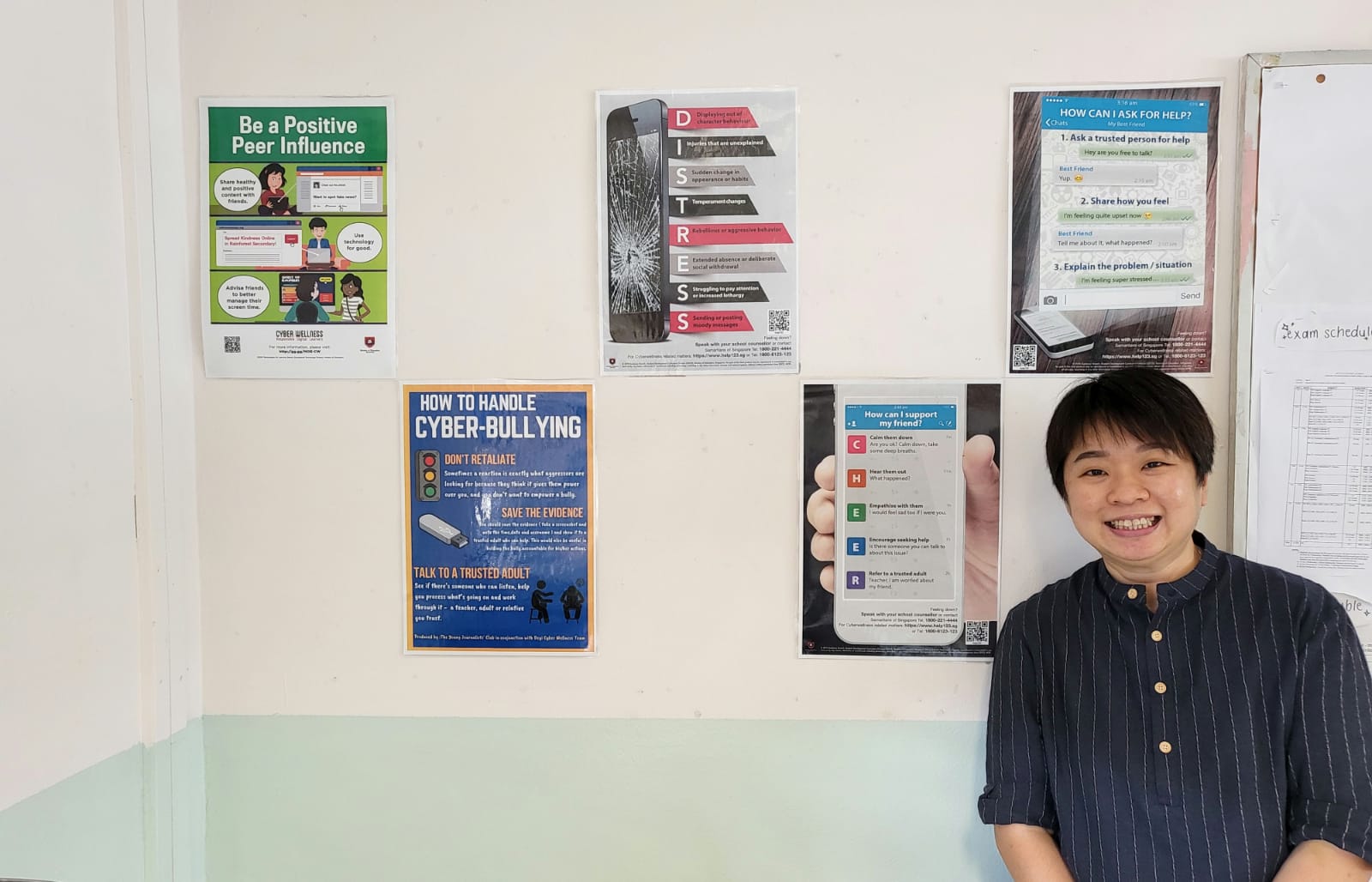
In Ms Eileen Tan’s classroom, posters about mental health set the tone that it is okay to talk about these issues and seek help.
“Students also keep a look out for each other and tell us if they are worried about their friend. For example, so-and-so is not okay, or if this student has been skipping recess and so on,” shares Ms Tan. “The teachers then find a time to speak to the student in private, and intervene, if needed. The increased awareness is helpful!”
Ms Tan and Mr Pflug add that the mental health lessons and socio-emotional skills learnt in CCE are further reinforced through key school experiences and learning opportunities beyond the classroom, such as in sports and games, Co-Curricular Activities, Outdoor Education and Values-In-Action projects. Students practise what they learn as they work and compete in teams.
As Ms Tan emphasises, “It is important to recognise that normal stress is a natural part of life, and cannot be avoided entirely. What matters is how we respond to it.”
She recounts the story of a Sec 1 boy who, at the end of a mental health lesson, asked her earnestly, “Why are my classmates stressed? I don’t feel stressed at all – is something wrong with me?”
As Ms Tan says with a smile, “People can react to the same situation differently. Our hope is for our students to develop resilience while also having the ability to empathise with others!”
Read more about how schools look after students’ mental health and well-being in other aspects of school life in Helping kids feel good about themselves or learn how another Specialised CCE teacher facilitates discussions on sensitive issues in Specialising in Trust.


.jpg)
.jpg)
